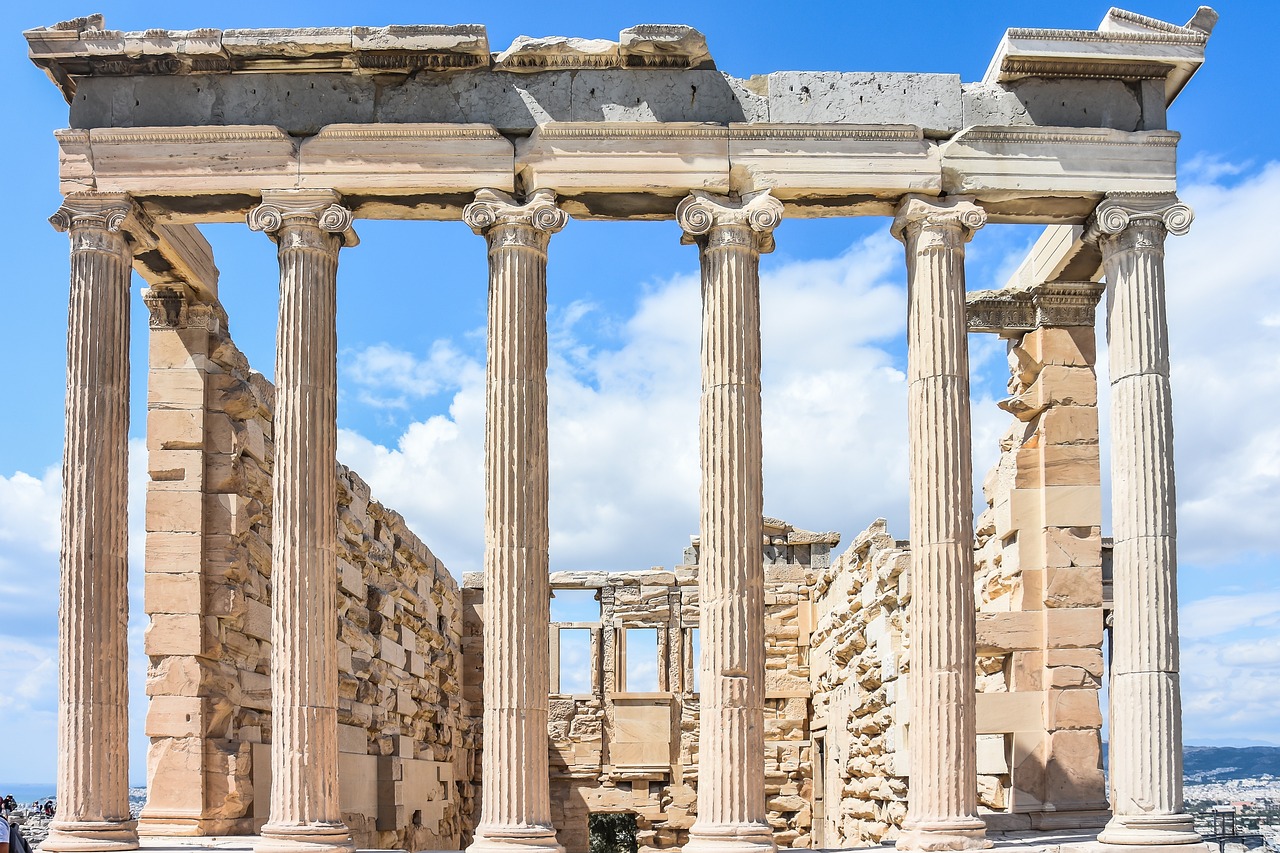Athena: The Olympian Goddess of Wisdom and War
Athena, the illustrious goddess of wisdom and battle strategy, was a pivotal figure in Greek mythology. Revered for her intellect and valiant deeds, she is known as the protector of cities and a patroness of various crafts including weaving and pottery. Visual representations consistently feature her as a regal figure armed with a shield and spear, adorned in a flowing robe, and crowned with a helmet. Notably, she often bears the aegis, a distinctive cape decorated with the fearsome head of Medusa.
Key Myths and Legends
Athena’s narrative is rich with remarkable tales:
- Birth from Zeus: Uniquely, Athena emerged fully grown and equipped for battle from Zeus’s forehead, a testament to her divine origins.
- Contest with Poseidon: In a legendary contest for control over Athens, she gifted the olive tree to humanity, while Poseidon offered a horse.
- War Against Giants: Athena played a critical role in subduing the Giants, entombing Enceladus beneath Mount Etna and crafting her aegis from the skin of Pallas.
- Aid to Heroes: She assisted notable figures such as Perseus in vanquishing the Gorgon and aided Heracles in accomplishing his twelve labors.
- Transformation of Arachne: After a weaving contest, which Arachne lost, Athena transformed her into a spider, symbolizing the consequences of hubris.
- The Trojan War: Athena sided with the Greeks in the Trojan War, punishing them with storms when they wronged her cherished temple in Troy.
Numerous additional myths capture Athena’s wisdom and martial prowess, reflecting her multifaceted character.
Family and Parentage
Athena’s lineage is predominantly traced to her father, Zeus, and her mother, Metis, a titaness known for her wisdom. A curious note is that Athena remained a virgin goddess with no progeny, emphasizing her independence and strength.
Cultural Significance and Worship
Athena’s worship spanned across the Greek world, but she held particular reverence in Athens, where she was honored as the city’s protector. Significant festivals such as the Panathenaea were dedicated to her, celebrating her contributions to civilization, agriculture, and artistry. Animals like the owl and serpent, and the olive tree, were sacred to her, symbolizing wisdom and prosperity.
Artistic Representations
Athena’s likeness was frequently captured in art, most notably in the statues created by the revered sculptor Pheidias. These included a grand gold and ivory statue in the Parthenon, which epitomized her glory and divine stature. Artistic depictions often showcased her in armor, with attributes such as a shield bearing Medusa’s head and various symbols of her divine role.
Conclusion
Regarded as a strategic deity blending wisdom and war, Athena’s attributes make her a unique figure in ancient mythology. She is celebrated as a protector of civilization, the embodiment of reason as opposed to chaos, and a representation of strength coalesced with intellect.



